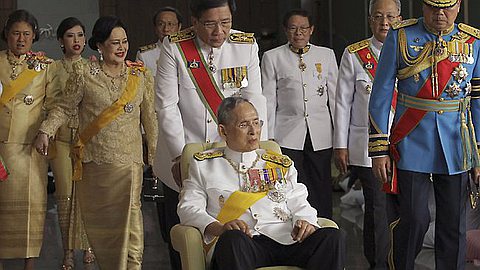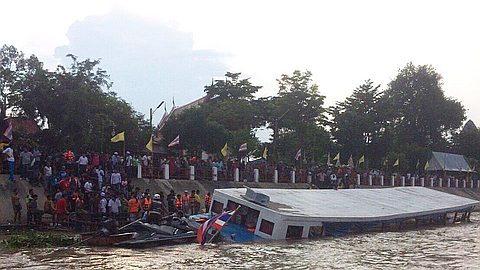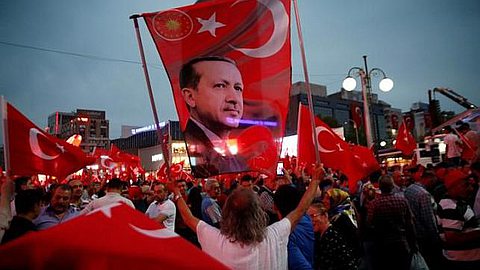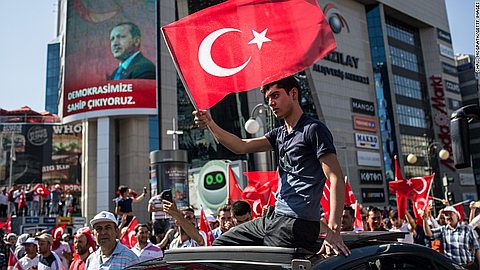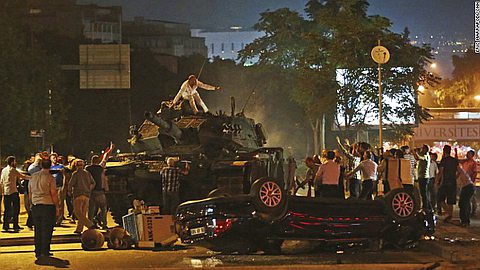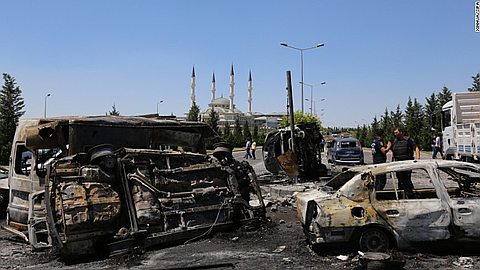Thailand Army Sees No Coup as Martial Law Imposed
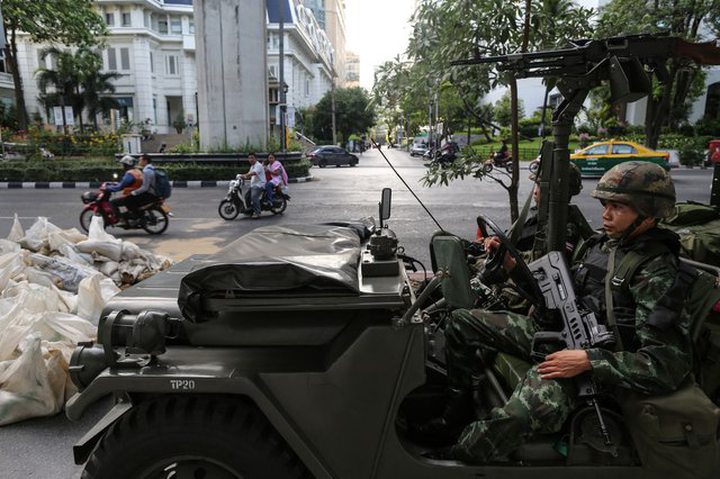
Caretaker Prime Minister Niwattumrong Boonsongpaisan said yesterday he is seeking backing from the nation’s Election Commission to hold a vote as soon as August. Officials of the commission will meet today to consider the request for an Aug. 3 vote and the army will also be consulted on the ballot, Commissioner Somchai Srisuttiyakorn told reporters yesterday.
The Thai military declared martial law early yesterday after more than six months of political turmoil that led to the the ousting of an elected government and sapped economic growth. Last night the military warned that people making comments to media that could incite violence risk prosecution, and threatened to shut down social media operators that don’t curb “provocative” content.
The Thai military has carried out almost a dozen coups since a constitutional monarchy was set up in 1932, with three governments overthrown since 2006 by the army or judicial action. Anti-government protesters are demanding an unelected council run the country to wipe out the influence of former Prime Minister Thaksin Shinawatra and his sister, Yingluck, overthrown this month, whose parties have won every election since 1992.
Not a Coup
The imposition of martial law nationwide is not a coup, Army Chief Prayuth Chan-Ocha said on local television yesterday and pledged that military control would be short. The army is seeking to restore order and asks political groups to halt their protests, he said. There was an increased presence of soldiers and military vehicles in the capital Bangkok, while the city remains calm.
“We expect the army to honor its commitment to make this a temporary action to prevent violence, and not to undermine democratic institutions,” White House spokesman Jay Carney said in Washington yesterday. “The U.S. firmly believes that all parties must exercise restraint and work together to resolve differences through peaceful dialog to find a way forward. This development underscores the need for elections to determine the will of the Thai people.”
The army is scheduled to provide a briefing later today after Prayuth meets with protest leaders, the acting Senate speaker and representatives from the Election Commission and political parties, Winthai Suvaree, the army’s deputy spokesman, told reporters.
Tourism Hurt
The army’s move sent Thai stocks and the baht tumbling on concerns that the deepening political crisis would further sap the economy in a country where services, mostly tourism, accounts for almost a quarter of gross domestic product.
The benchmark SET Index (SET) of stocks fell 1.1 percent yesterday after an early decline of as much as 1.6 percent. The gauge rose 0.5 percent to 1,401.49 as of the midday trading break in Bangkok today, and has gained about 8 percent this year. The baht strengthened 0.2 percent to 32.493 per dollar, according to data compiled by Bloomberg.
The declaration of martial law came one day after the government announced that the Thai economy contracted an annual 0.6 percent in the first quarter, as the crisis hurt tourism and weighed on exports. Economists surveyed by Bloomberg had forecast an expansion.
The number of foreigners visiting Thailand declined 5 percent in the first four months of this year after governments including the U.S. and Hong Kong advised their citizens to be cautious when traveling to the nation, the Thai Department of Tourism said yesterday.
Rural Support
Political polarization has escalated in the past decade over the role of Thaksin and his allies as their growing support among the rural poor threatens the power of the urban elite and Thai royalists. Thailand has been without a fully functioning government since December, when then-premier Yingluck called snap elections in a bid to ease the unrest.
“The political crisis seems to have reached a tipping point,” John Blaxland, a senior fellow at the Australian National University’s Strategic and Defence Studies Centre in Canberra, said yesterday. “The one institution that remains the arbiter of power in Thailand is the military. The politics have gotten so toxic there aren’t many viable alternatives to martial law.”
